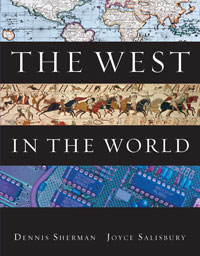1 A) modernizing Russia's military and government. B) freeing the Russian serfs. C) making Russia a dominant power in northeastern Europe. D) making Russian nobles serve the state in the military and bureaucracy. 2 A) a new constitution. B) peace. C) greater subjugation of the peasantry. D) a Russian Encyclopedia . 3 A) Russia, Prussia, France B) Russia, France, Austria C) France, Prussia, Austria D) Russia, Prussia, Austria 4 A) the principle of achieving peace at any cost. B) that a strong leader must never break a signed treaty. C) the principle of extending their territories. D) the principle of respecting the sovereignty of independent states. 5 A) parlements .B) philosophes .C) peasants' inability to pay taxes. D) Polish crisis. 6 A) the Parliament. B) George II. C) James Stuart. D) Robert Walpole. 7 A) the Tories B) the Whigs C) the Stuarts D) the Conservatives 8 A) Africa, the Americas, and Europe. B) Europe, Canada, and Africa. C) Africa, the Americas, and the Mediterranean. D) Africa, India, and Europe. 9 A) the Seven Years' War. B) the slave trade. C) Liverpool's banks. D) King George II. 10 A) philosophy B) power C) the Catholic Church D) economic wealth 11 A) the abolition of serfdom. B) the enclosure movement. C) the introduction of nutrient-rich potatoes. D) Charles "Turnip" Townshend. 12 A) the agricultural revolution. B) the enclosure movement. C) the industrial revolution. D) increased taxation. 13 A) a decrease in industrial production. B) increased poverty. C) a decline in the cottage industry. D) the expansion of urban hospitals. 14 A) required poor citizens to work on public projects or in workhouses. B) provided a minimum wage for unskilled workers. C) made it illegal for an impoverished mother to abandon her child. D) granted a daily minimum ration of bread for the underprivileged. 15 A) short story. B) epic poem. C) novel. D) political essay. 16 A) classical B) baroque C) romantic D) modern 17 A) the bourgeoisie had mastered early marketing techniques. B) the European lower classes underwent a religious revival based on reading the Bible. C) the price of printed materials went down. D) literacy was increasing. 18 A) Protestantism. B) religious revivals. C) free Bibles. D) charity hospitals. 19 A) their lack of universal suffrage. B) the fact that they were taxed without being represented in Parliament. C) the lack of religious freedom in England. D) the slave trade. 20 A) New York. B) New Amsterdam. C) Yorktown. D) Pittsburgh. 21 A) the king's opulent and lavish lifestyle B) warfare C) the tax farming system D) the parlements 22 A) the nature of British representation B) low levels of political corruption C) the idea of a "loyal opposition" D) the absolute nature of the British monarchy





